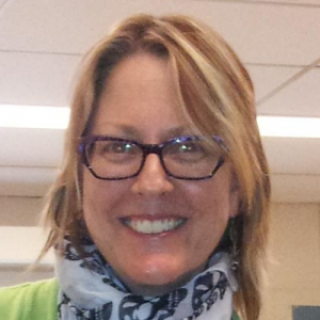Envisioning, Planning, and Implementing Better Systems for Dual Language Learners
Reflections on a Peer Learning Community of Nine States
October 19, 2023
In response to interest from state advocates and leaders, the National Institute for Early Education Research (NIEER) and the Migration Policy Institute (MPI) hosted a nine-month peer learning community (PLC) 1 The purpose of the DLL PLC was to facilitate collaborative learning opportunities where state teams learn with and from each other on how to meet the needs of young DLL children and their families as well as how to engage and support the early childhood workforce. State teams, comprised of state agency staff and stakeholder groups, worked to identify a catalyst for action that could lead to improved policies and systems for DLLs. For instance, teams were encouraged to consider existing levers and opportunities in their state as well as identifying where new mechanisms or systems for supporting DLLs might be needed.
NIEER and MPI staff served as the PLC Technical Assistance (TA) Team. 2 The DLL PLC provided technical assistance in multiple formats, including:
- Whole Group Sessions: All state teams met together for four 90-minute virtual meetings from February to August 2023. The virtual meetings included resource sharing from NIEER, MPI, and other partners on topics including crafting a good vision statement; resources on DLLs with special needs; inclusion of infants and toddlers in DLL policy; and building early learning Latine leadership. Each session included time for states to share updates and to discuss questions and topics of interest.
- Individual State Team Meetings: DLL PLC teams met internally on alternating months, and PLC TA Team facilitators joined these calls as requested.
- Cross-Team Meetings: States were offered the opportunity to meet with other states in a peer-to-peer format. For example, the Illinois and California teams met twice; Connecticut and Michigan and Nebraska and Texas met once, to discuss issues of common interest and learn more about a particular state’s policy or practice.
- Micro-Learning Sessions: The PLC TA Team offered micro-learning sessions where states could discuss a specific topic in depth and learn about promising practices. For instance, a virtual session for all state team members, titled What does it take to provide professional development focused on DLLs? was offered in September. PLC members had the opportunity to learn about and discuss current trends and issues in professional development focused on DLLs and how to link this to policy. Though there is not much data, the 2017 NIEER State of Preschool Yearbook showed that only seven programs reported having policies related to training and professional development (PD) for staff working with DLLs. 3 4
The next sections provide an overview of the goals of the state teams, reflections from PLC teams on what they learned, key takeaways from the TA Team on engaging in this work, and selected resources that may be of interest to others working on designing policy for DLLs.
Overview of State Team Goals
Nine state teams submitted letters of intent to participate in the PLC to NIEER and MPI in February 2023. Letters of intent described the current state context of DLL policy for young children and identified a diverse team representing key constituents influencing DLL policy, such as state agency leaders, local organizations, advocates, families, and legislators or other policymakers.
The nine teams participating in the PLC represented California, Colorado, Connecticut, Illinois, Michigan, Nebraska, Nevada, South Carolina, and Texas. At the outset of the project, each state team identified a process goal and a product goal to guide the team’s work. Key areas identified as priorities ranged from foundational work such as coalition building, promoting collaboration between diverse stakeholders, and conducting systematic needs assessments; to more targeted goals such as advancing the process of DLL identification at the state level, developing a collaborative plan to improve teacher preparation and professional development to work effectively with DLLs, and drafting specific recommendations for state Quality Rating and Improvement System (QRIS) review.
Reflections from PLC Teams
In response to a short survey conducted in July 2023 about their experiences, PLC participants shared the following feedback:
What is one thing you personally learned by attending the DLL PLC? This was an open-ended question, and most respondents reported that they learned from hearing what other states were doing. Others commented that they learned more about the unique challenges of DLL students. Selected responses include:
"The discussions have been highly productive, and I have gained valuable knowledge on how other states are implementing strategies to achieve their goals. This has been instrumental in charting a path for our own state. I appreciate this opportunity to learn and collaborate with experts in the field, and I look forward to continued engagement with the PLC. Shared vision development is hard work when aligning policy and practice for dual language learners... but deserving of the effort."
What is one way that participation in the PLC supported your state’s goals for young DLL children? All state teams shared that the cross-state learning opportunities provided by the PLC were extremely valuable and helped to bring new perspectives to this work, even as approaches and perspectives differed. Participants reflected that hearing from state successes and drawing on policies and practices that are being effectively implemented are important ways to build on existing resources to avoid reinventing the wheel in their own work. Additionally, survey respondents reported that the PLC gave them more information to advocate for their state’s goals and helped them to build cross-sector partnerships. Selected responses included:
"I can confidently say that it has brought momentum to my team. The goals we set for better serving DLLs in our state now feel more achievable because team members represent both non-governmental and governmental organizations, which helped align everyone's efforts. Helping me gain greater awareness of the issues facing DLL students to enhance my work in the community as well as bringing resources to the work group that can support the goals further."
Key Takeaways on Supporting States in Developing DLL Policy
The TA Team reflected on key takeaways to consider project successes, challenges, and opportunities for the future.
States have varied definitions of their DLL population. One of the earliest, but most critical, takeaways the TA Team had centered on the variety of definitions used to describe the DLL population among each of the states. While this is not surprising, the presence of so many state teams and perspectives allowed further pinpointing a critical underlying tension that makes the creation of policy so complex within and across states. Specifically, it provided insights for future work involving the creation of visions and policies which must rest on a common definition.
Each state has a diverse context and experience in developing policy for DLLs. Another prevalent takeaway was the diversity of the experiences of each state team. On the one hand, the composition of the state teams themselves differed significantly, with some teams being led by state advocates and others by state administrators and leaders within state departments of education. Similarly, the political context encountered by each state team varied substantially with regard to attitudes around DLLs, including opportunities for multilingual learning and home language support. This points to the need for differing strategic approaches to promoting these issues. Teams also differed in the depth of the history of DLL-specific policy considerations in their states, with historical immigrant-receiving states having more established coalitions, shared vision statements, and advocacy infrastructure relative to states with newer demographic shifts. In general, these differences highlighted the need for specific, targeted technical assistance opportunities that go beyond a “one size fits all” approach and do not assume that all teams would necessarily share foundational philosophical beliefs about the most effective way to approach this important work.
Cross-state peer learning is beneficial to ensure diversity of perspectives and build on lessons learned by other states. PLC discussions highlighted the relative lack of attention to DLLs in early childhood policy, underlining the need for both TA opportunities as well as continued awareness raising around these critical issues. The TA Team leaves this project with an understanding that the PLC is a helpful and beneficial space that can provide fresh perspectives and motivation for those who are engaged in DLL policy advancement.
Moving Forward
In response to participant feedback and the PLC TA Team’s reflections, NIEER and MPI intend to continue this effort for an additional year with support from the Alliance for Early Success. Several state teams have expressed interest in continuing to participate in the PLC, noting that time focused on fostering momentum and building coalitions in the first year puts them in a strong position to advance their goals in a second year of the project.
The TA Team is continuing to reflect on outstanding TA needs in the field as states move toward implementation of complex policies such as DLL identification in state data systems, noting the lack of a national TA center focused on these issues, and mindful that DLL policies are a deeply cross-cutting issue that touch upon all aspects of early childhood systems and policies.
Selected resources that were shared by the TA Team with DLL PLC are included below, and inquiries can be sent to Lori Connors-Tadros at ltadros@nieer.org.
Want to learn more about supporting DLLs?
Migration Policy Institute Resources:
Reports:
A Framework for DLL Identification
ECEC Language Access Report
National ECEC Recommendations for the Task Force for New Americans
Data:
State Fact Sheets on DLLs in your state
State Data Tables for DLLs in your state
National Institute for Early Education Research:
Reports:
Evidence of Support for Dual Language Learners in Bilingual Classrooms
Opportunities and Policies for Young Dual Language Learners
Research Instruments:
Classroom Assessment of Supports for Emergent Bilingual Acquisition (CASEBA)
Self-Evaluation of Supports for Emergent Bilingual Acquisition (SESEBA)
Professional Development:
Building Early Learning Latiné Educators (BELLE)
Selected State Resources:
California:
Dual Language Learner Pilot Study
Dual Language Learner Policy Platform
Connecticut:
CT Early Learning and Development Standards includes a Dual Language Framework
Supplemental guidance related to using the CT ELDS and supporting DLLs
Illinois:
English Learners in Chicago Public Schools: An Exploration of the Influence of PreK and Early Grade Years
Michigan:
Advancing Equity: A Strategic Vision for English Learners
Texas:
Texas Early Childhood English Learner Initiative- Vision and Policy Roadmap
Footnotes
- 1 In 2023, for states seeking to envision, plan, and implement supportive systems for dual language learners (DLLs), or young children who have at least one parent in the home who speaks a language other than English.
- 2 In addition to direct support from the TA Team, selected content experts were invited as guest speakers.
- 3 Information was shared from more recent brief, detailing states’ Preschool Development Grant Birth through 5 (PDG B5) grant proposals for multilingual learners.
- 4 To conclude the session, Tammy King, Program Manager for The Center for Early Childhood Professional Learning in Illinois, shared how her state approaches PD via a Center contract that provides free PD for the state’s early childhood education workforce.
Footnotes
The Authors
Dr. Lori Connors-Tadros is a recognized national leader in early care and education policy and research and provides technical assistance to states to use research to craft and implement effective policies. Lori has deep expertise in comprehensive state early childhood systems, finance and governance for effective policy implementation, leadership and agency capacity to implement policy and improve access, and research and policy to improve outcomes for young children.
Dr. Figueras-Daniel was awarded a Young Scholars Program grant from the Foundation for Child Development to investigate coaching and professional development of Latina preschool teachers working with DLLs. At NIEER, she leads this study as well a project to develop a Latina leadership pipeline in ECE.
About NIEER
The National Institute for Early Education Research (NIEER) at the Graduate School of Education, Rutgers University, New Brunswick, NJ, conducts and disseminates independent research and analysis to inform early childhood education policy.



